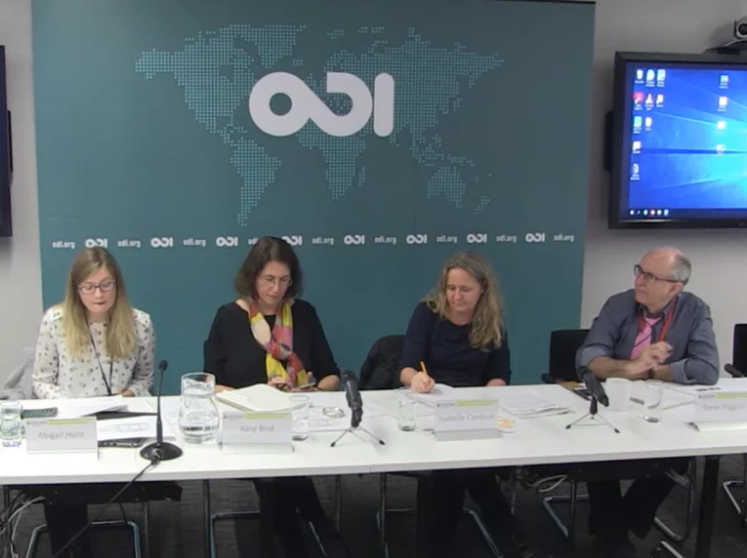On the 8th of March 2017, to celebrate women, and particularly poor women in developing countries, CPAN organised a very insightful round-table event to discuss the importance of including women and girls on the Leave No One Behind agenda.
Thanks to the participation of Isabelle Cardinal (DfiD), Abigail Hunt (ODI), Nicola Jones (ODI), Caroline Harper (ODI), Kate Bird (CPAN), Vidya Diwakar (CPAN) and Steve Wiggins (ODI), this session highlighted the importance of the care economy, land ownership, intersecting inequalities and education to work towards women and girls economic empowerment.
As Nicola Jones very adequately underlined, it is "very important to know what we are talking about and to adapt our language: it's not just about women's empowerment, it's about women AND girls' empowerment."
You can watch the video below and follow the whole discussion and the speaker's presentations.
The question of land and asset ownership was one of the main points of the discussion. Kate Bird and Vidya Diwakar's presentations emphasized the importance of land in empowering chronically poor women.
A signification number of the questions from the audience reacted to this point. Josephine Tsui, from ODI ask the panel to what extent land mattered in empowering women. Steve Wiggins argued that the historical evidence from Thailand, Egypt and Peru gives little indication of the significance of land ownership. Kate Bird, however, suggested that it is crucial. Evidence from life histories and focus groups she ran in Uganda, Kenya, Ghana and India, shows that the lack of land inhibits the choices women are able to make. Widows or divorcees have a very high risk of being poor, isolated and lack resources. Owning land plays a crucial role in shaping the relation ship with their partners and the decision making process.
Other points highlighted by the audience concerned disability and the importance of supporting the livelihoods of disabled poor women. Vidya Diwakar mentioned an ongoing CPAN project which looks at the triple burden face by chronically poor women and reveals that, as opposed to what one could think, it might not be unlikely that this fraction of women actually present a higher rate of economic activity, due to the fact that they are more prone to isolation and lack of assets, giving them no other choice.
The CPAN team would like to thank all the participants and speakers for this enriching discussion. If you want to know more about CPAN's work on chronically poor women and girls, please click on the following links :
- Project page: Donor’s best practices in reducing chronic poverty among women and girls
- IWD 2017 CPAN Blog series #1 - The road to zero poverty is paved with efforts to educate chronically poor women and girls?
- IWD 2017 CPAN Blog series #2 - The poorest women have a right to earn and spend their own money too!
- IWD 2017 CPAN Blog series #3 - What can be done to empower the poorest women?

